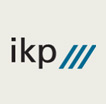The European Communication Monitor provides insight into future perspectives and current challenges of the PR industry.
From artificial intelligence and fake news to future-oriented skills for professional communicators – the European Communication Monitor 2023 shows which trends and topics are shaping the present and future of PR.
The European Communication Monitor (ECM) is the largest survey on the status quo of the European communication industry and is considered to point the way for current and future developments in the field. This year’s report brings together the findings of the last 15 years and thus provides a comprehensive overview of current opportunities and challenges in the PR profession. The overarching theme of the study is once again the influence of digitalisation on the practice of strategic communication. On the one hand, the resulting consequences manifest at the level of practical tasks and workflows. On the other hand, digital transformation also generates social consequences that require a strategic mind shift in many areas of competency. We have taken a detailed look at the recently published ECM 2023 and identified the most important trends and learnings:
- Man & Machine: Artificial and Human Intelligence in Harmony
Since the introduction of ChatGPT, artificial intelligence has become an indispensable part of the communications industry. More and more agencies and organisations are using AI and automation tools to make their PR activities more effective and efficient. The term “CommTech” has established itself as a description of this development. It refers to all digital technologies and services used for the strategic management of communication. In this context, PR relies increasingly on data and algorithms that enable a more precise targeting of dialogue groups. On the way to “digital maturity”, it will be vital to evaluate which tasks and work processes can be optimised through the use of CommTech and in which cases human intuition and empathy are required. This enables a responsible approach to AI and automation that takes the self-understanding and professional ethics of modern PR into account.
- New Skills for Effective Communication
Technological and societal changes require professional communicators to acquire new skills and competences to cope with the transformation of their field. The most important future skills include know-how about digital tools and data management as well as social and management-oriented skills. As a result, communicators will increasingly take on the role of advisors and coaches to empower other people to communicate on behalf of their organisation and orchestrate dialogues with relevant stakeholders. It is therefore important that PR practitioners acquire the necessary skills via training they may receive. Furthermore, it is crucial to adopt a holistic consulting approach that considers the social as well as economic, and political spheres of influence.
- Effective Communication in the Digital Jungle
According to the practitioners interviewed in the ECM, social media platforms have become the most important communication channel for PR. They allow for direct targeting and exchange without journalistic gate-keepers. However, they require new and creative content formats to reach audiences with messages and stories. A shift towards a “post-literal society” is emerging, in which images and videos, as well as VR and AR content, are becoming the preferred sources of information. Furthermore, digitalisation is leading to blurred boundaries between different communication disciplines as well as editorial and advertising content. Professional communicators are therefore encouraged to develop integrated content strategies that allow for the effective distribution of paid, earned, shared, and owned content across a variety of channels.
- Empowerment of Teams through Empathic Leadership
The mentioned changes in the communication landscape also require a modern leadership style that is capable of motivating teams and considering individual interests. The results of the ECM indicate that leadership performance and a supportive corporate culture significantly contribute to job satisfaction. Accordingly, the most important characteristic of contemporary leadership is an empathetic approach regarding the views and concerns of employees. This is especially important in view of the many stress factors associated with the increasing acceleration and complexity of the digital world. In this context, the management of diversity, equality, and inclusion is becoming an important factor for building creative and successful teams.
- Trust and Credibility in the Post-Truth Society
A problematic side effect of the popularity of social media is the increase in fake news, which spreads strongly in times of crisis. This leads to an overall decline in trust in the media, corporations, and public institutions. In the age of the so-called “post-truth society”, it is therefore vital to communicate transparent, accurate, and authentic to ensure the support of relevant publics. Credible internal company spokespersons as well as external experts play a key role here as they make corporate messages comprehensible and trustworthy. In addition, responsible dialogue with stakeholders also requires practical ethical guidelines – especially for communication in the digital realm.
Do you need professional and competent advice in managing the diverse challenges of digital communication? The ikp Vienna team is here to help you in word and deed. We look forward to your enquiry!












